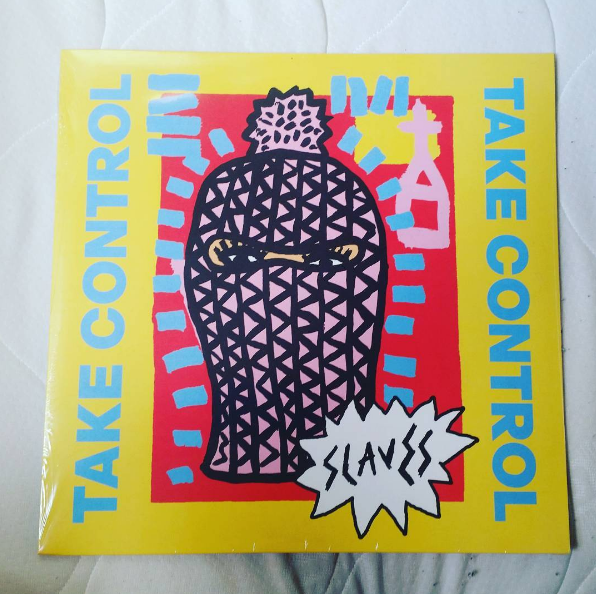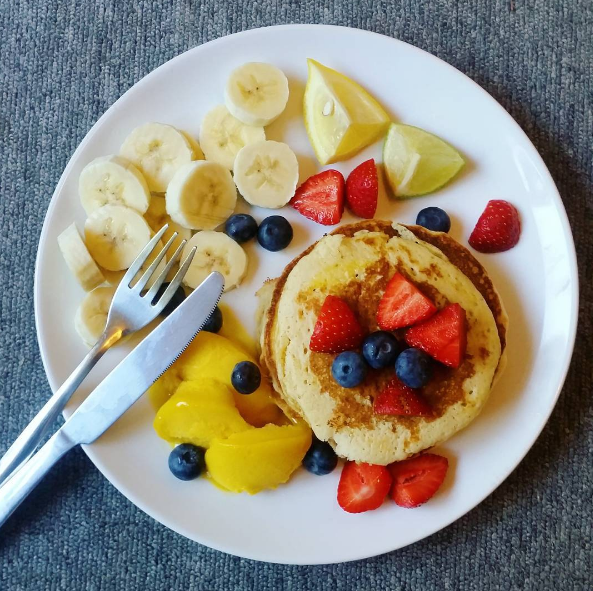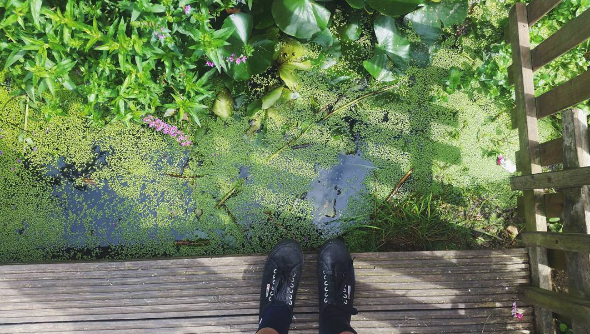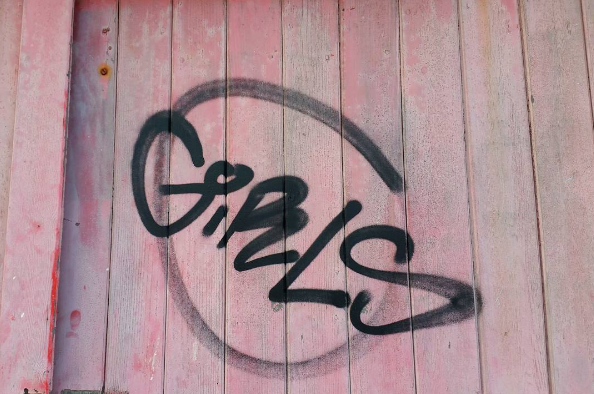
Instagram: kaateflood
This is a post about hormonal contraception, or what I have affectionately termed ’embodied hell’. How I came to opt for this piece of shit begins with my first foray into hormonal contraceptives with the Cerelle mini-pill in October 2014 followed by the Nexplanon hormonal implant in August 2016. Bear in mind I have panic disorder, rapid cycling bipolar disorder and a lowwww BMI. At the end of this entry I’ve summarised the side effects I experienced personally, if that’s all you’re here for.
Despite being sexually active for years beforehand, it wasn’t until I was 24 that I entertained the idea of hormonal contraception. Filling my body with synthetic hormones in a bid to suppress natural, healthy bodily responses seemed bizarre to me. I understand the pill is useful, particularly for women with heavy or uncomfortable periods, temperamental skin, hormonal imbalances or a desire for convenience. None of this was relevant to my own circumstances. I’d had long-term relationships, one-night stands and weird pseudo-relationships between, and condoms were always fine. I can’t take oestrogen anyway and the non-hormonal coil would make my periods too heavy for any nurse to consider fitting me with one. Aside from the fact I really do not want to deal with an abortion, with only the consolation prize options available to me why bother ? And yet in 2014 I threw caution to the wind, ignored my instincts, and decided to trial hormonal contraception – a decision that conveniently coincided with beginning my now two-year long relationship.
My periods have been hideous since I was 13, so it was something of a blessing when they stopped pretty much instantly after beginning Cerelle in October 2014. Less of a blessing: for the first few weeks I had water retention, mild nausea, mild acne and insomnia. Given that I’d just moved into a new place with new housemates, entered my final year of university, begun a new relationship and was taking too much MDMA, I didn’t really notice the beginning or end of these side effects. However, three months later in January, the panic attacks started. I’d only had two panic attacks in my life before this. The first during the onset of a migraine with complex aura and the second on my way to the opticians after taking the emergency contraceptive pill the day before, but I was now having panic attacks several times a day. These were those ultimate doom panic attacks, the kind that can take hours to recover from. I couldn’t speak, focus or walk; I had tingling in my lower face and ‘the claw’ in both of my hands.* Initially I put this down to getting wasted too often but after being sober for months at a time, the panic attacks continued. My doctors told me it wasn’t the pill. I called bullshit but persisted with it anyway – I needed time to let my body adjust and with my preexisting mental health conditions, it might just be a longer process than for most people.
*For the unfamiliar, ‘the claw’ happens when the muscles in your hands seize up due to an excessive amount of oxygen in the blood following hyperventilation.
By February 2015, I was having regular headaches and assumed my eye prescription had changed. I was right. I also assumed that getting new glasses and contact lenses would help. I was wrong. The panic attacks and headaches continued and my mood swings worsened. I put up with this for the next few months while I finished my final year dissertations, figuring that any change now would only disrupt my studies even further. If hormonal changes caused this psychological unrest, how would further disruption be useful right now ? This is a decision I don’t regret given that I did really well at university – somehow – and received a full scholarship for a Masters beginning that September. And, despite ongoing hideous side-effects, my mood was lifted by the prospect of good things to come: most of my favourite people were also staying at Sussex for another year, I was going on to postgraduate study and I was moving in with my boyfriend. I moved in with Julian and another friend in September 2015 and started the Masters. For the first few months, everything was fine – then, in early December, the panic attacks started again. Because my panic attacks had ceased temporarily but my pill taking hadn’t, I began to assume the two were actually unrelated. I must be drinking too much. I must be stressed. I must not be sleeping enough. I must have a poor diet. I must have lost weight. I must have put weight on. I must need my bipolar reviewed. Turns out: fucking none of it.
I continued having daily panic attacks. I was made redundant in February 2016 and started a new job in a bar in March 2016, which became the newest focus of my ongoing blame game. My colleagues are fantastic but the hours and environment not conducive to decent mental health: poor sleep, taking other people’s shit, getting abused just for being on the wrong side of a bar, and drinking more than I’m used to. Alongside an intensified study schedule, it’s no wonder my mental health isn’t great ! It cannot be the pill ! And, predictably, by April the headaches had started again. The panic attacks continued. Then I had three migraines in the space of a couple of months which for me is completely abnormal. In June I went to see a doctor and ended up being tested for a brain tumour. There were no more lifestyle changes I could make: I wasn’t drinking or taking drugs, I couldn’t quit my course else I’d lose my scholarship, and I needed a job to pay the rent. Contraceptive review it was. While I wasn’t quite ready to abandon hormonal contraception entirely now that I’d grown accustomed to the convenience, from both friends and the Internet I’d heard the implant was pretty good and according to my doctor, only the equivalent of 2.5 pills a week. Even if the unpleasant side effects didn’t go away completely, surely less hormone can only make me feel better ? Nah.
At the beginning of August, I had the Nexplanon contraceptive implant put in my arm. Insertion was super easy and although my arm ached for the first couple of days, I didn’t require painkillers at any point. However, rather than taking my pill for the first week (Nexplanon is not effective for the first 7 days), I stopped taking the pill and went celibate for a week. During this week my panic attacks worsened and I felt like I had flu the whole time. I felt nauseated, dizzy and spaced. I was having hot flushes and shivering spells and assumed this was due to a sudden shift in my hormone levels and nothing to worry about. Of course my body needs to adjust. However, after the first week, I felt worse than I had at any time while on the mini-pill. Extreme water retention meant my weight rocketed – I wasn’t gaining fat but I was getting heavier and my self-esteem fell to absolute zero. I had acne everywhere that I hadn’t also developed terrible, repulsive eczema. I was exhausted everyday and wide awake at night. My sex drive dwindled into nothing and my moods were awful. I’d wake up in the morning completely furious: everything and everyone annoyed me to psychopathic proportions. After three weeks, I was desperately unhappy and a nightmare to be around but stuck with advice to ‘let everything settle down’ before having the implant removed. Then I found out it can take up to a year to feel ‘normal’ again and there’s no guarantee you’ll feel as you did prior to beginning hormonal contraception anyway. After four and a half weeks, I had a series of panic attacks in my sleep (yes, that’s possible) and woke up eleven times in one night. Each time covered in sweat, each time with my heart racing, each time more freaked out than the last. I made an appointment at the university clinic the next day. After five weeks on it, I had the implant removed because fuck. that.
A few days after the removal I felt a little spacey and weird but within two weeks I felt fine. My weight went back to normal more or less instantly, my libido is slowly recovering and my skin and moods are stabilising. Unfortunately, even though its now been 3.5 weeks my period still hasn’t returned. Despite advice from my doctor that I’m still within the normal timeframe for my menstruation returning and that my low BMI may be playing a part too, I’ve still taken the obligatory pregnancy tests out of fear. Thankfully they’ve all been negative.
I never thought I would actually look forward to getting my period again, particularly not when I’ve had the joy of not having to deal with it at all for two years – but aside from my menstrual cycle currently being M.I.A., I feel better than I have done since the beginning of 2014. The mini-pill wasn’t enjoyable but it was bearable, albeit an experience I wouldn’t choose to repeat. I stuck with it for two years, supported by a super cool boyfriend. Though the fact that the lesser hormone made me feel worse seems nonsensical, I can only assume that’s to do with the difference in how the body absorbs the hormone into the body. Or maybe I should have trusted my instincts from the beginning: hormonal contraception just isn’t for me. To summarise the side-effects of each…
Cerelle mini-pill
- Water retention. Worse at the beginning; would return with varying severity; no obvious pattern to it.
- Weight gain. I’m naturally super slim so I always remained on the slim side, but bigger than I was before I began taking the pill. I’m returning to normal now.
- Acne. Notaggressive kind, the “always a little greasy” kind.
- Greasier hair. As above – my hair just needed washing more than usual.
- Mood swings. Mild but noticeable.
- Headaches. Came and went at random; could be a change in eye prescription but persisted long after that; not something I ever experienced before.
- Panic attacks. Nearly everyday, several times a day.
- No periods. My periods stopped more or less as soon as I started taking them and never returned throughout the entire two years I was on Cerelle.
Nexplanon contraceptive implant
- Water retention. Lasted the entirety of the five weeks on the implant; steadily worsened until removal. I felt like a balloon animal until all of it disappeared within two weeks of having the implant removed.
- Acne. The really gross kind this time; disappeared when I had the implant removed;skin is still finding its former equilibrium.
- Dry hair. The precise opposite of before. This is better now.
- Mood swings. Severe. I wanted living things to die in front of me. I woke up already raging and full of disgust, contempt and hatred. I’ve never felt so angry for so long, for absolutely no reason.
- Headaches. A constant dull ache.
- Panic attacks. These were frequent and felt different to the panic attacks I’d experienced before – milder but more unnerving; a constant creeping dread.
- Diminished sex drive. By that I mean, it disappeared completely. Every single human became repulsive to me.
- Disorientation and feeling spaced. Really, really out of it – I’d zone out midway through conversations, forget what I was talking about mid-sentence. This is getting better now but annoyingly this is one of those persistent side-effects that’s lingered since.
- No periods. Even in the 7 days between stopping Cerelle and Nexplanon becoming effective, I had no periods. At the time of writing its been 3.5 weeks since I had Nexplanon removed and still no sign of my period yet.
Some of my friends have Nexplanon and love it – no negative side effects at all. Other friends have had terrible experiences and tried to warn me beforehand. I’d be interested to hear about other experiences of the implant too. If anyone wants to present another argument for or against either Cerelle or Nexplanaon, please do submit.
Finally, my experience has left me wondering – is there enough attention paid to the psychological effects of hormonal contraception ?

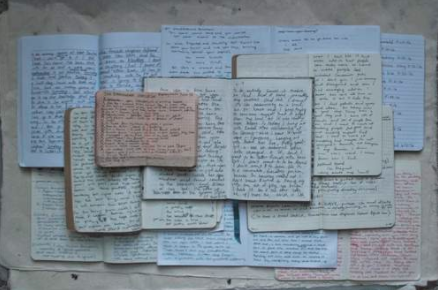
 This is an update following a post I wrote about my hideous experiences on Cerelle and then
This is an update following a post I wrote about my hideous experiences on Cerelle and then 